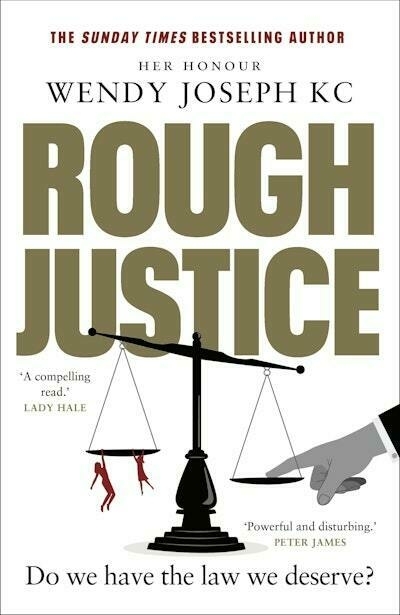📚 Finished reading Rough Justice by Wendy Joseph.
This a sort of sequel to Joseph’s previous book, Unlawful Killings, which I read last year, although you could happily read them in either order.
It’s organised in a very similar way to her former offering. Wendy Joseph was a Crown Court judge. She takes us through a set of cases that are technically fictional but based on an amalgam of real trials, detailing what happens in the court room. So we get a mix of law-and-order but trueish-crime style stories along with information about court procedures and points of law that it behoves us to know about our justice system.
This time we have two themes that she focuses on via her selection of cases.
The first is the topic of justice itself. She notes that our approach to punishment has softened over time; no more do we legally disembowel, behead or hang perceived wrongdoers. But in terms of establishing the guilty/not guilty verdicts themselves, of bringing criminals to justice - whatever that means - she asks whether we’ve actually become all that more just over time or not.
On that, her conclusion is distressingly unsure. Some attempts at progress have certainly been made, but was it all that we could have done, and are they given adequate priority?
Some of the evidence for or against the proposition comes from comparisons of her modern-day cases with ones from the Old Bailey’s extensive archives which often have distinct parallels.
Her other focus is on cases involving women. Women commit less crime than men, and when they do so it tends to be more minor, less violent crime. There are of course exceptions. There’s more than enough to construct some interesting cases to consider. Lawyers, jurors and other court staff can also of course be women. Society of course has dynamics we should consider that make all of these roles more challenging than they are for the typical man. The author herself witnessed and was subject to plenty of sexual harassment.
The book starts off with a case involving a man accused of sexually abusing a young girl. The next is a young lady accused of murdering, dismembering and disposing of the remains of an older lady. Then a wife who kills her husband after years of abuse. And finally, a grandmother, who together with her son, is in the dock for harbouring a weapon that led to tragedy in the hands of her grandson
In several of these cases there’s not really much ambiguity as to whether at least part of the violent act was committed. But, even when we can figure out who did it, committing an act of violence isn’t the same as committing the criminal offence of violence.
Killing someone, for instance, has at least 6 potential defences one might consider.
- The alibi: It wasn’t me.
- Accident: I didn’t mean to do it.
- Lack of intent: I wanted to hit him but not intending to do great harm.
- Self-defence: I only hurt him to stop him hurting me.
- Diminished responsibility: My mental condition reduces my responsibility for what I did.
- Loss of control: He did or said something that would have made any reasonable person in my position snap.
Part of Joseph’s conclusion is that whilst reforming court practice is absolutely necessary and should be prioritised, there are places in the journey well before a case gets to the attention of a judge that must also be addressed.
We might ask why so much sexual violence, typically (but not always) committed against women of course, is not reported. And why so little of that which is reported is dropped before ever getting as far as to result a criminal charge, let alone a court case.
And even earlier in the process; it’s surely far preferable to stop a crime being committed in the first place than to have it considered after the fact by even the fairest of trials. Why then, in this case, do women commit crime? And why is crime committed against women? Is there anything in the understand of that could be used to prevent it in the first place?
The causes of crime are extensive and multifaceted - nature, nurture, lifestyle et al. But there are surely, for instance, social determinants of these matters, some of which society consistently fails to address.
Whilst the court system must be dramatically improved - which involves committing substantial resources to it - we can ease the burden on it and, far more importantly, the horrific impact of crime on people’s lives, by reducing the number of occasions where people feel compelled to commit crime in the first place.
